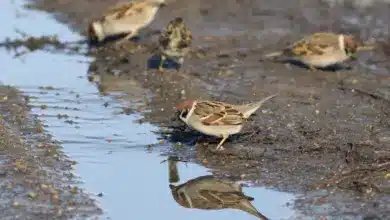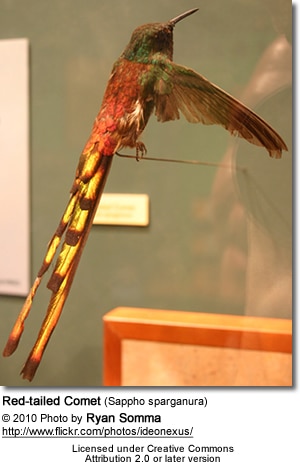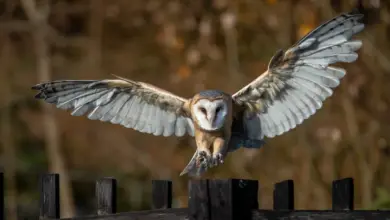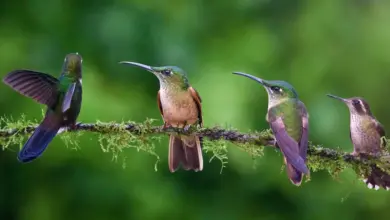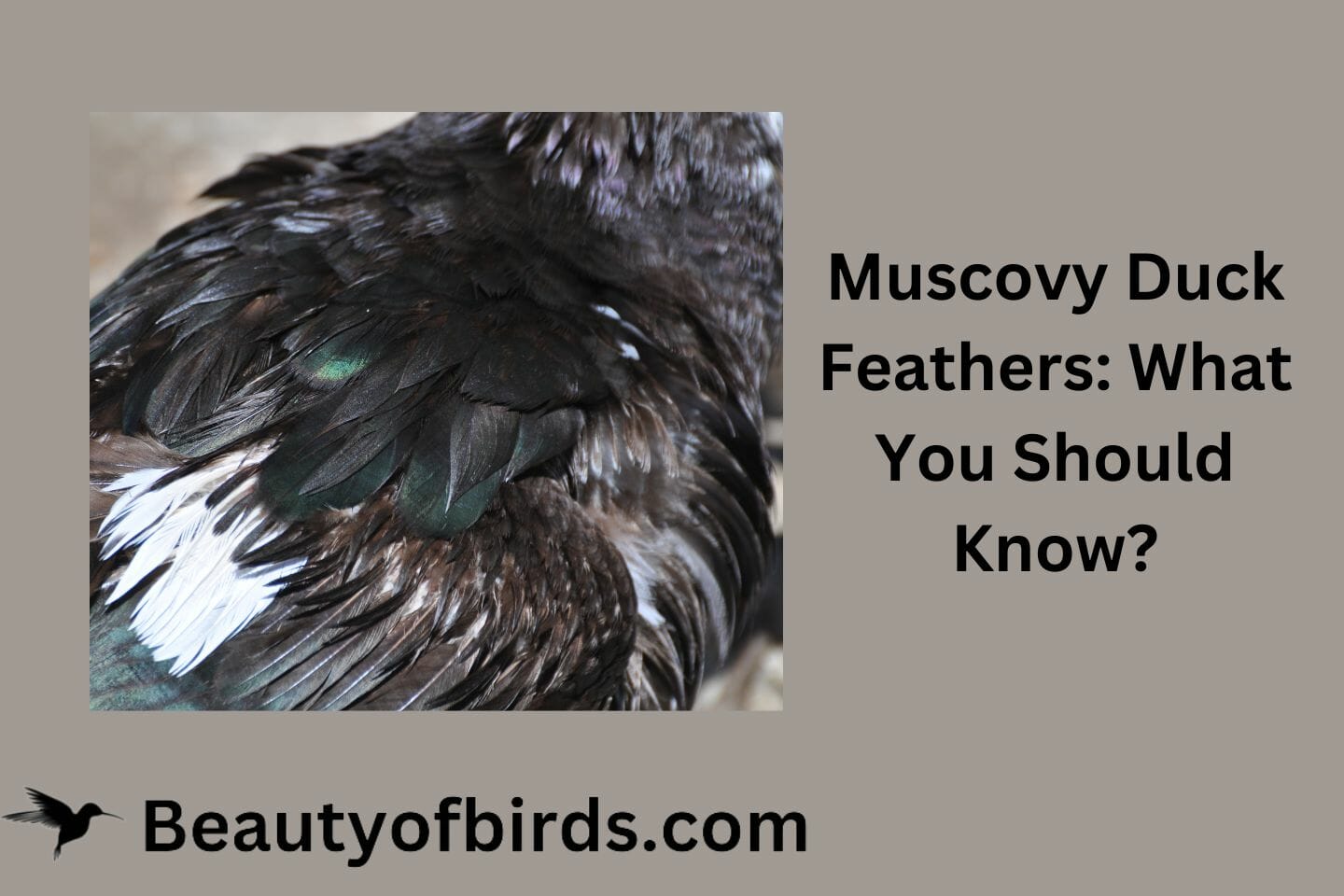Do peacocks eat meat?
Do peacocks eat meat? Are they carnivores, omnivores or herbivores?
Yes, peacocks eat meat and vegetation since they are omnivores. Peafowl eat everything from slugs, larvae, small frogs and insects to snakes in order to have a complete protein-rich diet.
If you’re keeping peafowl as pets it’s best to give them plenty of space to roam so they can naturally find their own sources of protein.
This freedom is beneficial to their overall health as peafowl need to move around and “spread their wings” as any bird does.
They’ll rid your yard of grasshoppers, any larvae living in your lawn and other small creatures like small rodents and lizards.
In the wild peafowl can be seen scratching the earth like chickens do in search of insects, ants, crickets, worms and spiders. They’ll also eat any berries or other plant material they come across while they are foraging.
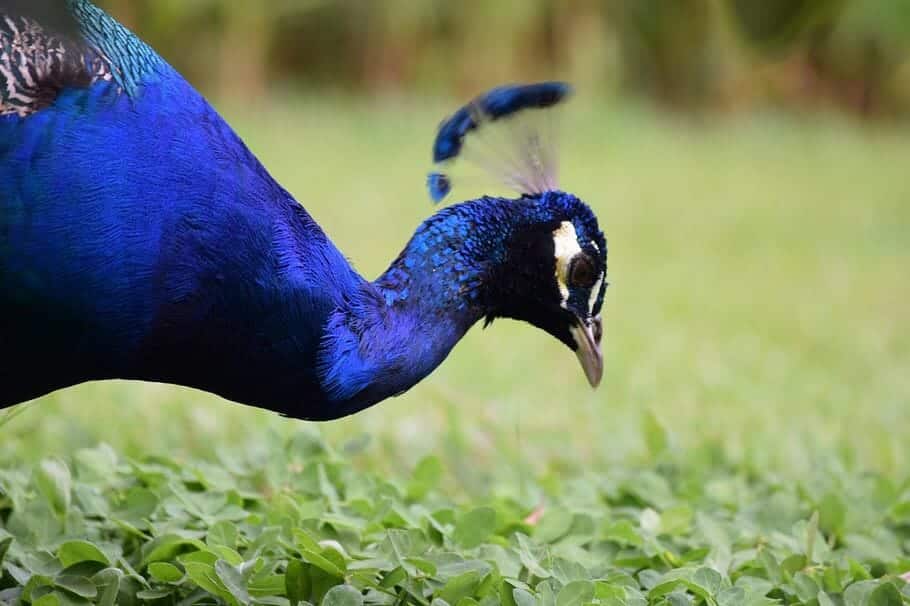
What Are Peacocks Favorite Food? Is it meat?
In order to understand what a peacock’s favorite food is, it should be considered what they would naturally gravitate to in the wild when they have complete choice to choose what plants or animals to focus their attention on.
Scientific research determined that although peafowl are omnivores and will eat a wide variety of foods both in and out of captivity, they do not prefer meat over plant-based options.
Peacocks actually gravitate to grains, specifically rice.
This makes peafowl primarily granivorous (eaters of grains) as opposed to herbivores and seem to prefer grains of different types over all other sources of food.
In a different study peafowl were given a choice of 3 different grains in captivity to better understand their preference.
The study clearly concluded that maize was their preferred grain choice closely followed by millet. When given a free choice, the peafowl ate the maize 47% of the time and the millet 41% of the time.
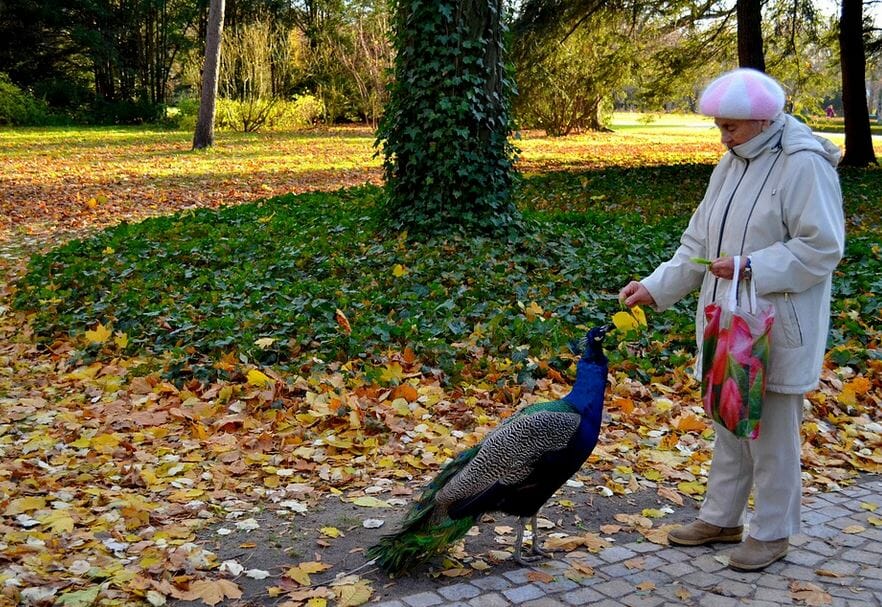
Poultry feed, a major food source for peafowl in captivity in the USA was chosen only 12% of the time, demonstrating that this was clearly their least favorite food.
This is not to state peafowl should only be fed grains, these birds still need fresh fruits and vegetables as well as naturally occurring protein sources like live insects for a complete diet.
Luckily peafowl seem to enjoy eating a wide variety of fruits and vegetables commonly found throughout the world like tomatoes, chilies, carrots, potatoes, radishes and bananas.
Even wild birds will walk into gardens looking for them so take note if you have a garden of your own and want to keep your veggies for your own consumption.
Peafowl also gravitate towards delicate shoots in the wild, so gardens that are just sprouting are particularly susceptible to peafowl damage and it’s best to fence off any part of a garden you don’t want these birds to dine on.
What Shouldn’t You Feed Peafowl?
There are many food sources that are bad for peafowl that they will naturally shy away from as well as gobble up thinking it’s a healthy treat. You should be aware of what your peafowl is eating and how healthy it is for them at all times.
One of the most common food sources suggested on the internet is dry cat food. Cat food, although your peafowl might like it, is a poor choice when it comes to feeding time.
Dry cat food has been known to cause renal failure in cats due to it’s very low moisture and high saturated fat contents. The high concentration of processed fats is the primary reason this is a poor choice for peacocks as there are no known natural equivalents in nature they would normally feed on.
These saturated fats can cause an array of problems for a bird’s digestive system as well as overall health. So as much as your bird of paradise might love snacking on cat food, it’s best not to feed it to them.
Although peacocks need sources of protein for optimum health, you shouldn’t be giving them any type of processed meat like bologna or bacon.
Processed meats contain high levels of salt (sodium) and an array of chemicals used to cure and preserve processed meats. None of which are beneficial, and can be harmful to your ostentation or pride (a group of peafowl).
Potato chips, tortilla chips and anything “chips” should also be avoided for the same reasons as processed meats. Chips also contain a large amount of processed oils that can be harmful.
Chips when eaten quickly by a peafowl can also end up being sharp objects as they travel down their throats and can cause damage to their esophagus. So include all chips as a no-no food source.
Can Peacocks Eat Chicken Feed?
Yes, peacocks and peahens will eat chicken feed, but as we demonstrated above it’s best to offer their other two preferred choices of grains, maize and millet, for happier peafowl.
And if the birds are kept in captivity, they still need additional sources of fresh fruits and vegetables as well as natural protein sources.
It’s also recommended that they have plenty of space to forage for live insects and other protein sources on their own as feeding peafowl without the opportunity for them to roam will cause them to become lethargic and overweight.
This is because in the wild they will burn off most of the calories they acquire in search of food. If caged, this opportunity no longer exists and can lead to unhealthy birds.
Do Peacocks Eat Fish?
Yes, although not very common in their natural habitat, peafowl do catch and eat fish. They are usually small and are caught in shallow waters.
Fish are a great protein source as well as containing other fatty acids that are beneficial to peafowl and fish meal is sometimes added to to their diet when in captivity.
What Do Peacocks Drink?
Peacocks, peahens and peachicks all naturally drink water just like all bird species do.
And although peacocks will drink other liquids like cola or juice, due to their chemical flavorings as well as high sugar content it is recommended not to give your peafowl anything but fresh clean water to drink.
Adult peafowl need at least 2 to 3 cups of fresh water daily per bird. In hotter climates they can consume even more water, so always have a supply of fresh, preferably cool water readily available.
In Conclusion
Being omnivores, peacocks eat a wide variety of foods, some naturally occurring in nature and while others are introduced by humans as “feed” for captive birds.
The easiest way to know if a food source is beneficial or harmful is to understand your peafowl’s natural eating habits. This is true for any wild animal kept in captivity.
The closer you can come to mimicking what they eat in the wild, the healthier your pride will be and the longer your peacocks will live.
And that goes for humans as well, if a peacock shouldn’t be eating processed foods due to their salt and chemical content, then we probably shouldn’t be either.

